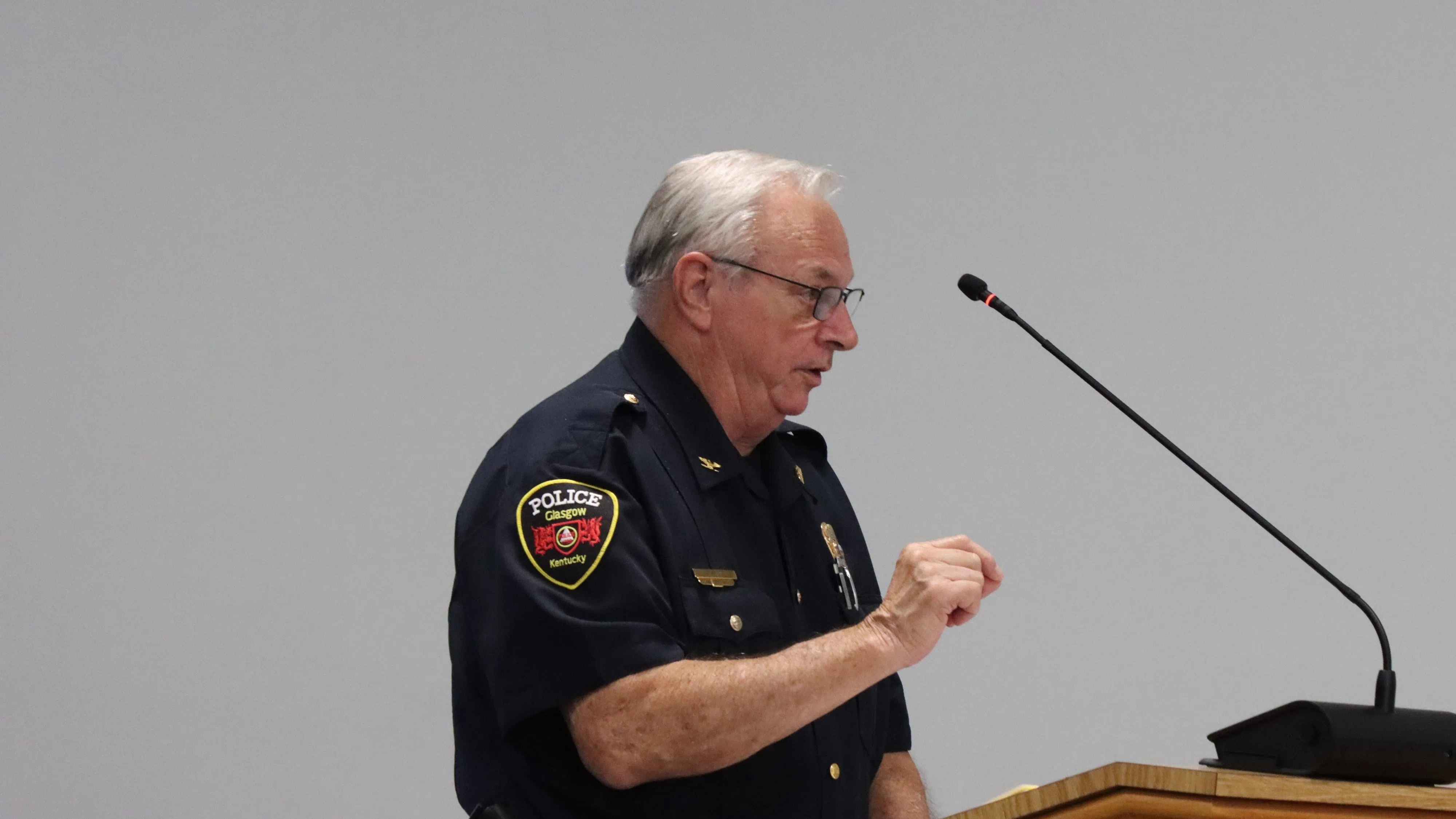By MELINDA J. OVERSTREET
for Glasgow News 1
The Glasgow Common Council on Monday provided the first of two required nods for a new ordinance meant to reduce the number of false alarms for the city’s police and fire departments.
The proposed ordinance relating to alarms has been discussed multiple times by the council’s public safety committee, but it was met with some resistance by some members initially. After some changes were made that would take some of the “bite” out of the enforcement aspect of what could become local law, the members of that committee late last month approved unanimously taking it to the full council.
The enforcement bit was the one part City Attorney Rich Alexander read in detail rather than from a summary before a motion and second and discussion began.
He said it was designed to address excessive false alarms that divert resources from those emergency departments and “creates reasonable standards to ensure that alarm owners are held responsible for the proper operation of their alarm systems.”
For the purposes of this ordinance, four or more false alarms per address within a calendar year would be considered excessive and would be unlawful, and civil – not criminal – penalties would be established. For the first through third false alarms within a calendar year, written warnings would be issued. The fourth and subsequent offenses would be met with fine amounts that get progressively higher – $25, $50, $100, $150, respectively, until the eighth and ninth, for which the fine would be $200. With the 10th time, police and fire response would be restricted to verified alarms only, and the alarm user would have to install an approved alarm monitoring system.
False alarms created by weather conditions would not be counted against the alarm owner.
Any monies collected through these fines would be earmarked for a Parks and Recreation Department account to be used to help pay for registration fees to participate in youth programs if a child’s parent or legal guardian cannot afford it.
An appeal process with the council public safety committee would be established by the ordinance as well.
Even if the second reading is approved later this month, the ordinance would not take effect until Oct. 1. That delay was requested by Glasgow Police Department Chief Guy Howie to provide more time for businesses – which is where most false alarms originate – and other alarm users to become aware of the new rules. Once the ordinance goes forward, Howie told the council, anytime his department responds to an alarm – false or otherwise – a copy of the ordinance with a letter will be sent to inform or remind the user to make sure their alarm is maintained well, that employees are trained well on how to activate and deactivate it and make sure they know any necessary codes, so when the alarm company calls them, they can verify whether the alarm is valid before the police are even notified.
“That would eliminate a huge majority of the alarms …,” the police chief said. “The majority of our false alarms come from employers that are not teaching their employees the proper protocols.”
Aside from the fact that departmental resources are pulled from other efforts to respond to these preventable alarms, Howie said they can become dangerous for those responding, because they can become complacent after responding to so many of them that they are not properly prepared should a real problem be in progress.
A few of the council members commented and/or asked questions, like Councilwoman Marna Kirkpatrick. One of hers was about what prompted the need for the ordinance.
Last year, Howie said, his department sent resources to more than 900 alarms; of those, only three were valid alarms. That came up to almost 524 hours officers spent responding, he said. Based on call numbers so far, the department is on track to surpass last year’s numbers in 2025, he added later.
Councilman Joe Trigg asked whether GPD personnel could do inspections similar to how the fire department inspects for fire hazards and/or consult with the alarm owner about issues.
Howie said they already have been known to do that.
He added that the fire department doesn’t have anywhere near as many false alarms as the police, but this could help keep it from getting that way, and they didn’t want to have two separate ordinances. Glasgow Fire Department Chief Lucas Tinsley, who was on hand to answer questions as well, has told Glasgow News 1 he supports having such an ordinance.
One of the issues that arises with alarms, particularly in “off” hours, is that police have to wait for a keyholder to let them in to check out the situation. If the keyholder doesn’t live relatively nearby – or if current contact information for key holders isn’t provided to the alarm company and/or emergency dispatch center – the officers could be waiting for a while.
Howie pointed out that ordinance has wording to try to address that.
Kirkpatrick asked whether other cities have this issue, and Howie named several other cities with ordinances to address it and said they used those as examples when drawing up the proposed one.
Alexander said he had looked at several, and most didn’t provide that many warnings before starting with fines.
Ultimately, with all nine council members present, the vote was unanimously in favor on the first reading of the document.
— The report on the rest of the business taken up by the council Monday evening is at this link.

Comments